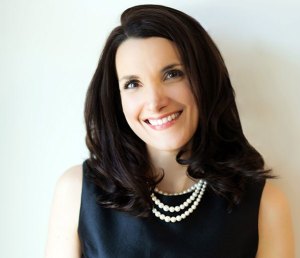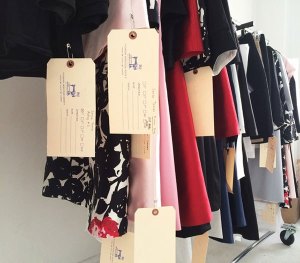News & Stories
Unexpected lessons

Kristen Fanarakis (BA ’98, MBA ’13) , founder of Senza Tempo
If you ask MBA students why they chose their program, most will tell you it’s some combination of rankings, career goals, location and fit. A well-rounded curriculum will rarely make the list. For an entrepreneur, it’s one of the most valuable aspects of the UNC Kenan-Flagler program. Entrepreneurs need to know something about every aspect of their business from accounting to operations. They also need tools or frameworks to help figure out how and where to enter a market or if they should enter at all.
I spent the last two terms of my MBA@UNC program researching my business Senza Tempo, a clothing line that creates luxury wardrobe essentials for women. I didn’t anticipate that a single exercise in Professor Al Segars’ Business Innovation course would ultimately help me decide to shift my business model from a traditional wholesale to a direct to consumer model – a strategy I never even considered.
In Professor Segar’s narrative building exercise, you pick two qualities of a product – price vs. quality of clothing – or classification of product versus the retail outlet – like bricks and mortar or ecommerce. You then map the market along the two dimensions to find the gaps, which should tell you what direction the market will move.
By the time I finished my MBA in spring 2013, Warby Parker and Everlane were already successfully providing luxury quality products (eyewear and casualwear, respectively) at a fraction of the cost by selling direct to consumers. They were bypassing the wholesaler to eliminate an entire layer of markup.

Senza Tempo products
What I realized from the exercise was that no one was selling luxury-quality wardrobe essentials for women who need more than T-shirts and khakis.
Two iterations of the exercise confirmed two gaps in the women’s clothing market. The first was luxury ecommerce. High-end brands have been very slow to adopt an online presence and remain behind the curve. For example, Chanel started selling eyewear online only in 2016.
The second iteration of the exercise showed a gap in the women’s wear market, especially in the area of wardrobe basics. The market had diverged into fast fashion and very high end ready-to-wear. Brands that typically offered good quality at a reasonable price point like J. Crew and Banana Republic had declining quality and rising prices.
My background was on Wall Street, but in foreign exchange not retail. What I didn’t realize was that this exercise, which shows you where the gaps were in a given market, would still be dead on four years later.
You don’t have to follow the retail market from a business perspective to know that the current retail model is broken. From J. Crew to Macy’s, none of the traditional retailers have been spared. Since the financial crisis, department stores and traditional brands cannot move their merchandise without offering aggressive mark downs. Consumers know they aren’t getting the best deal at full price and so they wait.
By eliminating the wholesaler and selling direct to consumers I don’t have to artificially inflate my prices in order to preserve my margins. If a client sees a dress or skirt they want, they don’t have to wait for it to go on sale, because it won’t. Today there are a growing number of brands like mine that sell direct to consumers and simply offer the best price right out of the gate.
As a double Tar Heel, I’m obviously biased about the quality of a Carolina education. Every time I watch the news or read an article about troubles plaguing the fashion industry, I feel grateful – grateful that I was lucky enough to take Professor Segar’s course before I launched my business and incurred costly mistakes and to be a Tar Heel and part of the UNC Kenan-Flagler family.
Kristen Fanarakis (BA ’98, MBA ’13) is the founder of the Los Angeles-made clothing line Senza Tempo.